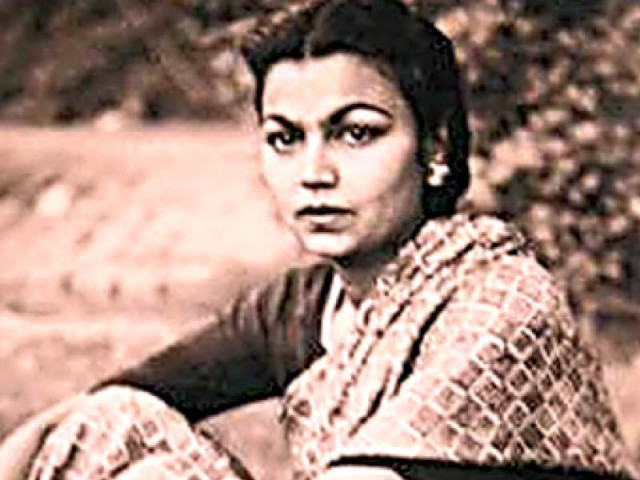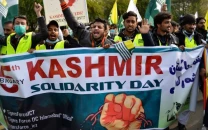Remembrance: Another progressive voice goes silent
Some of Masroor’s famous work was based on partition-related events.

Remembrance: Another progressive voice goes silent
With the demise of famous short story writer Hajra Masroor, the count for progressive writers in the country has decreased further.
Well known for her stories that portrayed the subcontinent’s complex landscape before and after partition, Masroor passed away due to her illness on Saturday.
Though she didn’t publish much after her marriage to Dawn’s editor Ahmad Ali Khan, the material she had produced by then was of great literary importance, given her unique perspective as a female writer during a historical time.
“She was deeply attuned and sensitised to other humans, maybe that’s why she chose to write on marginalised communities, but in a compassionate yet empowering way,” said literary figure Iftikhar Arif, who described Masroor as an introvert, complex and a unique person.
He also noted that the believability of her writing was her strength and coming across such writing, especially in the dying genre of short stories, is hard to come by.
“Her seven collections are a great asset for Urdu prose. She was an active member of progressive writers and wrote many memorable short stories,” said Pakistan Academy of Letters Chairman Abdul Hameed.
Born in 1930 in Lucknow, Masroor produced some harrowing and painfully realistic work on the human condition, but with the intricacy and relevance of time and place.
Arif noted that writers from her generation should be revered, as their writing and experiences have the power of history. “No writer can truly replicate the experience of witnessing life in the subcontinent, its partition and the struggles of the new country without being there. That’s why Masroor’s generation produced so many great writers,” he said.
Rawash Nadeem, who belongs to the modern generation of writers, echoed Arif’s sentiments. He exalted the work Masroor delivered, saying that it spoke to an entire generation and hopefully will continue to do so.
Though Nadeem didn’t know her personally, he commented on how her family was inclined towards literature. “Her sister Khadija also produced some piercing fiction, it was very heart warming to see two women in one family making strides in a male-dominated society and literary circle,” added Nadeem.
Arif, however, noted that Hajra didn’t stay active after her marriage, which affected her relationship with writing. While he claimed he didn’t know why, he expounded that given the richness of writing material available before and during partition, perhaps the writer was disenchanted for inspiration later in her life.
Agreeing with him, Nadeem said, “The subcontinent was a land of many cultures and religions, it was complex and inspiring for any writer. In today’s Pakistan, writers are not fully able to enter the mindset of individuals other than their own community.”
Writer Harris Khalique said he had known Masroor since his childhood, as his aunt was close to her. “She always maintained a sober disposition and exuded certain sensitivity, which is visible in her stories.”
However, he noted that despite her disposition, she took social issues as her subject matter in a manner that was more subtle than radical, especially compared to other female writers such as Ismat Chughtai and Zahida Hina.
Published in The Express Tribune, September 18th, 2012.



















COMMENTS
Comments are moderated and generally will be posted if they are on-topic and not abusive.
For more information, please see our Comments FAQ